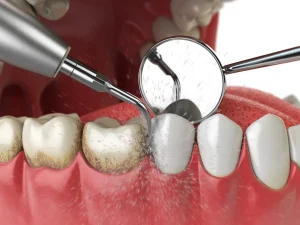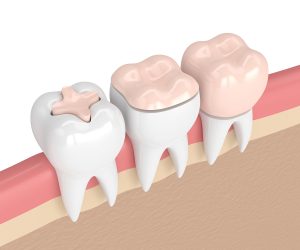There’s a significant connection between osteoporosis and dental health that you might not be aware of. As a patient with osteoporosis, informing your dentist about your condition is imperative, as it can impact your dental treatment and overall oral health. Osteoporosis can weaken the bones in your jaw, which may affect your dental procedures and healing processes. Additionally, certain medications for osteoporosis might have implications for your dental treatments. By discussing your osteoporosis with your dentist, you can ensure a tailored approach that prioritizes your health and safety during visits.
Understanding Osteoporosis
A comprehensive understanding of osteoporosis is important for maintaining your bone health and preventing potential complications. Osteoporosis is a condition characterized by weakened bones, making them more susceptible to fractures and breaks. While it can develop silently over many years, understanding its implications can empower you to take proactive measures for your well-being.
Definition and Causes
Around 54 million people in the United States are affected by osteoporosis and low bone mass, making it a significant health concern. Osteoporosis occurs when bone resorption outpaces bone formation, leading to diminished bone density. Several factors contribute to the development of osteoporosis, including age, hormonal changes, nutritional deficiencies, and certain medical conditions.
Symptoms and Risk Factors
To recognize osteoporosis early, it’s important to be aware of potential symptoms and risk factors. The symptoms may be subtle but can include:
- Back pain, often due to a spinal fracture
- Loss of height over time
- A stooped posture
- Fractures with minimal or no trauma
The risk factors include a family history of osteoporosis, low body weight, smoking, sedentary lifestyle, and excessive alcohol consumption. The early identification of these symptoms and risk factors is vital for your proactive health strategies.
Understanding the symptoms and risk factors of osteoporosis can significantly influence your health management. By recognizing these signs, you may be more inclined to seek medical advice and get screened. Some common symptoms and risk factors include:
- Changes in posture
- Increased susceptibility to fractures
- Family history of osteoporosis or fractures
- Certain medications affecting bone health
The earlier you engage with your healthcare provider, the better equipped you’ll be to manage and potentially prevent osteoporosis-related complications.
The Link Between Osteoporosis and Dental Health
Now, understanding the connection between osteoporosis and dental health is important for maintaining your overall well-being. Osteoporosis not only weakens your bones but can also have a significant impact on your dental health. When your bone density decreases, it can lead to a variety of oral health issues that may compromise your smile and oral functions.
Impact on Jawbone Density
Among the most concerning effects of osteoporosis is the reduction of jawbone density. As your jawbone becomes less dense, it may affect the stability of your teeth, leading to potential mobility issues. This downward trend may also complicate dental procedures, such as extractions or implant placements, necessitating closer monitoring and intervention from your dentist.
Increased Risk of Dental Complications
Density loss in your bones increases your risk of dental complications. This includes issues like tooth loss, gum disease, and a higher likelihood of infections. As your jawbone weakens, the support for your teeth diminishes, making them more susceptible to decay and severe periodontal disease. Your dentist can offer personalized strategies to help mitigate these risks and maintain your dental health.
At your dental visits, it is important to discuss any history of osteoporosis or related treatments. Being open about your condition enables your dentist to tailor your care and prevent potential complications. Regular check-ups and treatments can help you manage both your bone health and your dental health effectively, ensuring a healthier smile for years to come.
Importance of Informing Your Dentist
The significance of informing your dentist about your osteoporosis cannot be overstated. By disclosing your condition, you enable your dentist to better understand your oral health needs and tailor treatments accordingly. This proactive communication fosters a collaborative environment where both you and your dentist can work together to ensure that your dental care aligns with your overall health and minimizes any potential risks associated with osteoporosis.
Tailored Treatment Planning
Above all, your dentist can design a personalized treatment plan that accounts for the possible effects of osteoporosis on your dental health. This ensures that procedures are performed safely and effectively, reducing the likelihood of complications. Your specific needs and concerns will shape the approach taken, leading to better outcomes and a more comfortable experience during treatment.
Preventive Measures
Across your dental journey, informing your dentist about your osteoporosis allows for the implementation of preventive measures tailored to your unique situation. This proactive stance is imperative for maintaining oral health while managing osteoporosis.
It is vital to address preventive measures that can help safeguard your oral health as a person with osteoporosis. Your dentist can recommend routine check-ups, practiced oral hygiene, and appropriate fluoride treatments to strengthen your teeth. Additionally, they may suggest dietary adjustments to ensure you are receiving the necessary nutrients for bone health, including calcium and vitamin D. With these tailored preventive strategies, you can reduce the risks associated with dental procedures and support your overall health effectively.
Dental Procedures and Osteoporosis
Unlike patients without osteoporosis, those with this condition may face special considerations during dental procedures. Osteoporosis affects bone density, which can impact the healing process after dental treatments. It’s imperative that your dentist is aware of your osteoporosis so that they can tailor their approach to help ensure a successful outcome, especially in procedures involving bone manipulation or surgical intervention.
Considerations for Tooth Extractions
Any tooth extraction can pose unique challenges for you if you have osteoporosis. The risk of delayed healing and complications due to reduced bone density means that your dentist might take extra precautions or recommend a more conservative approach. They may also choose to use additional forms of treatment to support bone health, helping you to heal more effectively.
Implications for Dental Implants
Around dental implants, osteoporosis can significantly influence your treatment options. The success of an implant largely depends on the surrounding bone’s ability to integrate with the implant. If you have compromised bone density, your dentist may need to explore alternatives, such as bone grafting or using specialized implant techniques to ensure long-term stability and function.
At this stage, it’s important to discuss your bone health in detail with your dentist when considering implants. They might suggest preliminary treatments to enhance your bone density or recommend alternative solutions if your current state of bone health does not support the implant procedure. The goal is to ensure that your dental work is both effective and safe, allowing you to maintain a healthy smile through careful planning and consideration.
Collaborative Care Between Healthcare Providers
Keep in mind that effective collaborative care between your healthcare providers can significantly enhance your treatment outcomes. When you communicate your osteoporosis diagnosis to both your primary care physician and dentist, you create a comprehensive approach to your overall health. This partnership enables your providers to work together, ensuring that your dental treatments complement your osteoporosis management, ultimately safeguarding your bone health and minimizing any risk of complications.
Role of Dentists and Osteoporosis Specialists
Beside your primary care physician, dentists play a vital role in handling issues related to osteoporosis. They can identify changes in your oral health linked to the condition, such as bone density loss in your jaw, which might affect the success of dental procedures. By working closely with osteoporosis specialists, your dentist can tailor treatments that cater to your specific needs, thus enhancing both your dental and overall health.
Importance of Communication
Among the key factors for effective healthcare is clear and open communication. When you share your osteoporosis diagnosis with your dentist, it allows them to consider specific precautions and adapt their treatment plans accordingly. This communication fosters a supportive environment where both you and your healthcare providers can discuss any concerns or questions, ensuring that you receive the best dental care while managing your osteoporosis effectively.
Communication about your osteoporosis is vital for several reasons. Your dentist may need to modify treatments, recommend preventive measures, or even consult with your osteoporosis specialist regarding medications that may impact your oral health. By being transparent about your condition, you empower your dental team to provide personalized care that aligns with your overall health objectives, reducing the likelihood of complications and enhancing your treatment experience.
Lifestyle Modifications for Better Dental and Bone Health
To support your dental and bone health, consider making lifestyle modifications that promote overall well-being. This can include maintaining a balanced diet, engaging in regular physical activity, and establishing a proper dental hygiene routine. By incorporating these changes into your daily life, you can enhance your resilience against osteoporosis-related complications and improve your dental health.
Nutrition and Supplements
Before making any dietary changes, consult with your healthcare provider about incorporating calcium-rich foods and vitamin D supplements into your daily routine. This combination can enhance your bone density and provide vital nutrients for your teeth. Including dairy products, leafy greens, and fortified foods can make a significant difference in maintaining your bone and dental health.
Exercise and Preventive Practices
Health is a key factor in maintaining strong bones and gums, and regular exercise is necessary for supporting both. Engaging in weight-bearing activities, balance exercises, and resistance training can significantly strengthen your skeletal structure while also benefiting your oral health through improved circulation.
And, it’s important to include preventive dental practices in your routine. Regular dental check-ups and cleanings can help detect early signs of issues related to osteoporosis. Asking your dentist for tailored advice on oral care can further enhance your prevention strategy, ensuring that you stay proactive about your dental and bone health.
Presently, you should inform your dentist if you have osteoporosis, as it significantly affects your dental care and overall oral health. Osteoporosis can lead to bone density loss in the jaw, impacting tooth stability and oral procedures. By sharing this information, your dentist can provide tailored treatments and preventive measures that are best suited for your condition, ensuring you maintain healthy teeth and gums throughout your osteoporosis management. Prioritizing this conversation will enhance your dental care experience and support your long-term health.














